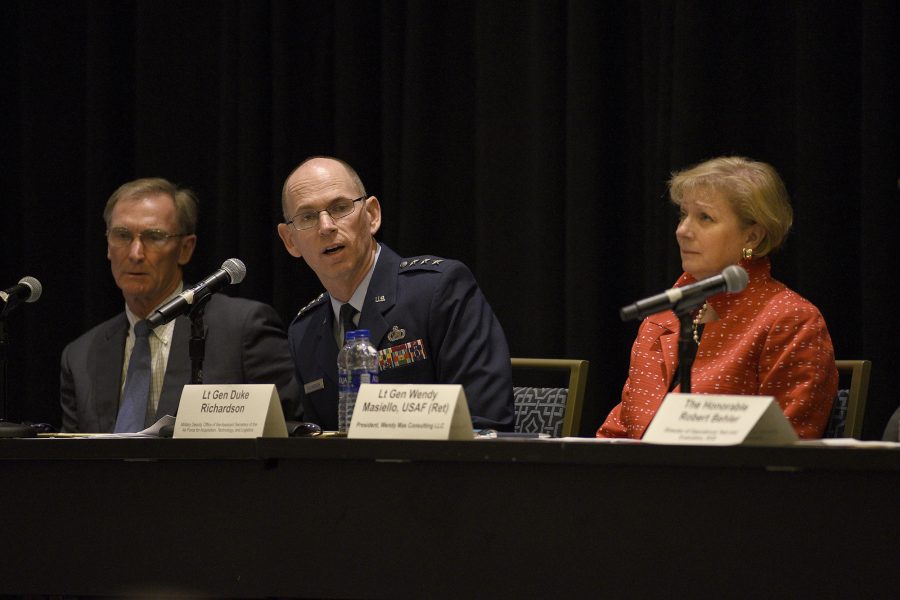The Air Force expects that some of the prototyping programs launched under its recently minted Section 804 fast-track procurement authority will fail—and it’s OK with that, a senior acquisition officer told AFA’s 2019 Air, Space & Cyber Conference on Sept. 17.
“We’re going to have miscues on Section 804, and that’s OK,” said Lt. Gen. Duke Richardson, the military deputy in the office of Air Force acquisition head Will Roper.
Indeed, Richardson said some degree of failure is to be welcomed. “I hope there are some that don’t work out, otherwise we’re probably not pushing the envelope hard enough,” he told a panel on industry partnerships.
Section 804 of the 2016 National Defense Authorization Act mandated the creation of new “middle tier” procurement authorities that would allow for rapid prototyping and fielding of new defense capabilities.
But the very nature of such programs, Richardson told Air Force Magazine after the event, means that some aren’t going to succeed. “Because they’re prototypes, we don’t know ahead of time if they’re going to work,” he said.
What the service needs to avoid is “oversteering” and condemning the whole idea because some don’t work out, he said. “The important thing is to figure out why it failed and then learn from it, not just say ‘Well, I guess we shouldn’t do 804s anymore.’”
The authority was designed to allow new technology to get to the warfighter faster, but that also means accepting more risk, Richardson said, something that needs to be reflected in the way programs are managed. “We have a tendency to run the small programs just like the large ones, and we shouldn’t do that, that doesn’t make sense. The financial risk is much lower to us” for a small program, he pointed out.
Recognizing that faster acquisition means greater risk also has implications for the way that personnel need to be incentivized, he added.
“Right now, the workforce is very fairness based, which is fine, and very process based. And the reason they’re so processe based is because they don’t want to make a mistake, because they don’t want to get hurt for it. And that’s what slows us down sometimes.”
Asked how the service could overcome this notorious risk aversion of its acquisition community, he replied, “Simple: By not shooting them” if they get it wrong.
Acquisition officials need to know that “as long as the program plan is solid and well executed with due diligence, they’re not going to get hurt,” career-wise, by failure, he said. “We have folks who’ve been promoted that have worked on programs that have been canceled. I’ve worked on canceled programs and I’m still here,” he concluded.
